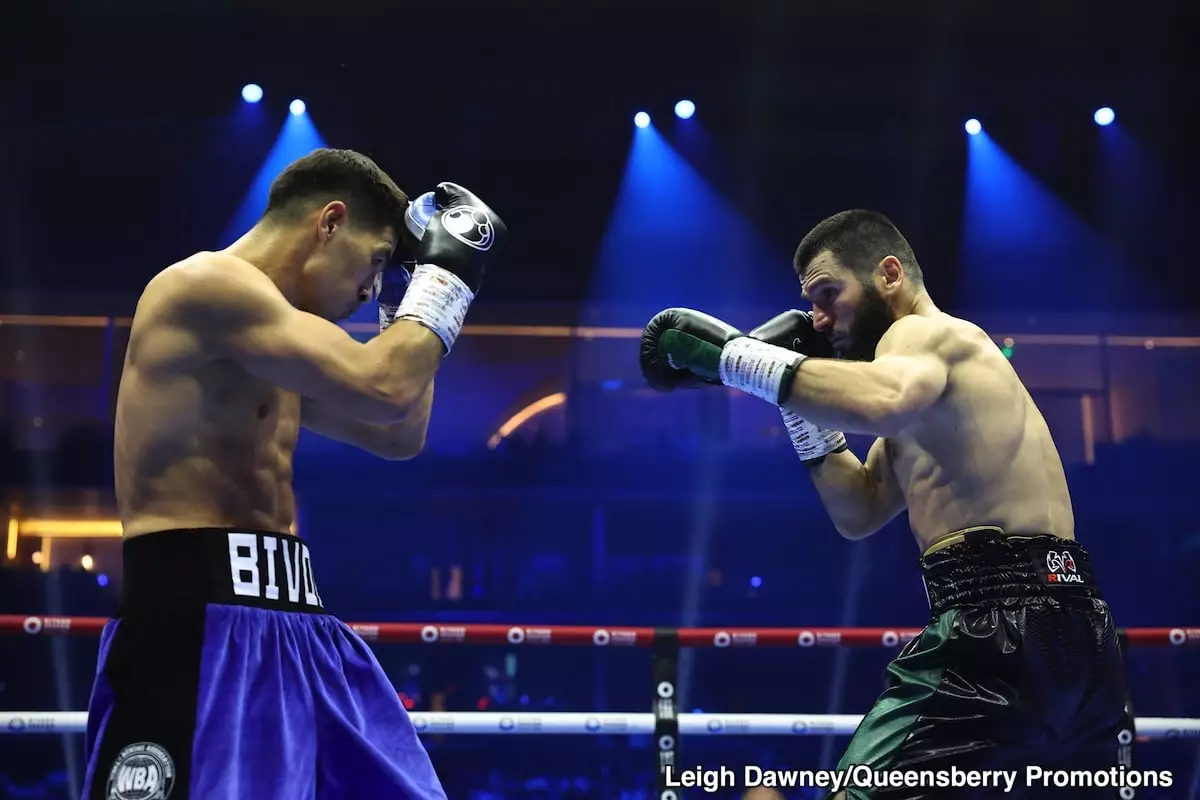The world of professional boxing is fraught with tension, rivalries, and the often-unforgiving nature of judgment. Following the recent bout between Dmitry Bivol and Artur Beterbiev on October 12th, a myriad of opinions have circulated regarding the fight’s outcome and the subsequent actions taken by Bivol’s camp. Bivol, who lost by a majority decision after twelve rounds at the Kingdom Arena in Riyadh, Saudi Arabia, has since filed a formal protest with the four major boxing governing bodies, seeking a rematch with Beterbiev. This decision raises essential questions about sportsmanship, strategy, and the unpredictability of boxing outcomes.
At the heart of Bivol’s protest lies the claim that a “majority of viewers” believed he was the rightful victor of the match. However, this assertion is inherently flawed; the subjective nature of audience perception cannot provide concrete evidence for the legitimacy of an appeal. This begs the question: was this a strategic ploy by Bivol’s team aimed at inflating his brand image with hardcore fans, or a genuine appeal based on a misunderstood sense of justice in the sport? Such appeals to public opinion often paint the party seeking the rematch as petulant, reminiscent of fighters who exhibit a lack of maturity in accepting defeat.
Moreover, one must consider the dynamics that led to this point. While the fans’ sentiment is important, boxing operates on a framework of rules and regulations established by the sanctioning bodies. Hence, Bivol’s claims may inadvertently portray him as a competitor unwilling to acknowledge the clear assessment rendered by the judges on the night of the fight.
Assessing the Fight: A Tactical Examination
The bout itself drew a polarized response concerning its entertainment value and the strategies employed by both fighters. Although Bivol displayed some technical skill and defensive capabilities, he ultimately adopted a retreating stance that hampered his chances of victory. Critics contend that, particularly after the seventh round, Bivol shifted into survival mode rather than maintaining a competitive edge. This distancing maneuver, while perhaps a necessary tactic for avoiding Beterbiev’s yoke of power, may have siphoned the excitement from the established narrative.
Commentators noted that Bivol’s evasive approach became increasingly ineffective as Beterbiev adjusted his own strategy, effectively cornering Bivol from the late rounds onward. In boxing, the heart of competition often lies in a fighter’s ability to adapt and seize opportunities. It could be said that Bivol missed several crucial opportunities to engage when Beterbiev was potentially vulnerable, particularly early in the contest. His reluctance to engage in meaningful exchanges resulted in a lackluster performance that may cloud his perception among fans and boxing insiders alike.
Whether a rematch between Bivol and Beterbiev materializes remains a topic of active speculation. If orchestrated, key adjustments will be necessary in terms of venue dynamics and strategy. Some argue that a smaller ring would curtail Bivol’s mobility, amplifying the relentless pressure Beterbiev exerts as a power puncher. The rematch, if it happens, should ideally shine a light on Bivol’s capacity for adaptation under severe duress—a quality that champions are often judged against.
Moreover, as the heavyweight scene in boxing is rife with options, including potential bouts with renowned figures like Canelo Alvarez or David Benavidez, Bivol must consider his positioning in this competitive landscape carefully. Should Beterbiev opt for more commercially viable or prestigious fights, Bivol risks fading into the background, raising questions about his future prospects and relevance in the sport.
Dmitry Bivol’s appeal for a rematch with Artur Beterbiev encapsulates a broad spectrum of issues within professional boxing—emotional responses to defeat, the complexities of fight strategy, and the overarching need for credible pathways to redemption. While Bivol undoubtedly faces challenges ahead, the capacity to evolve as a fighter and respond to the opinions of fans and critics alike ultimately defines his legacy. Going forward, a focus on building a stronger and more effective fighting style will serve him better than an appeal to the governing bodies, reminding all aspiring champions that the heart of boxing lies in the ring, not in the court of public opinion.

